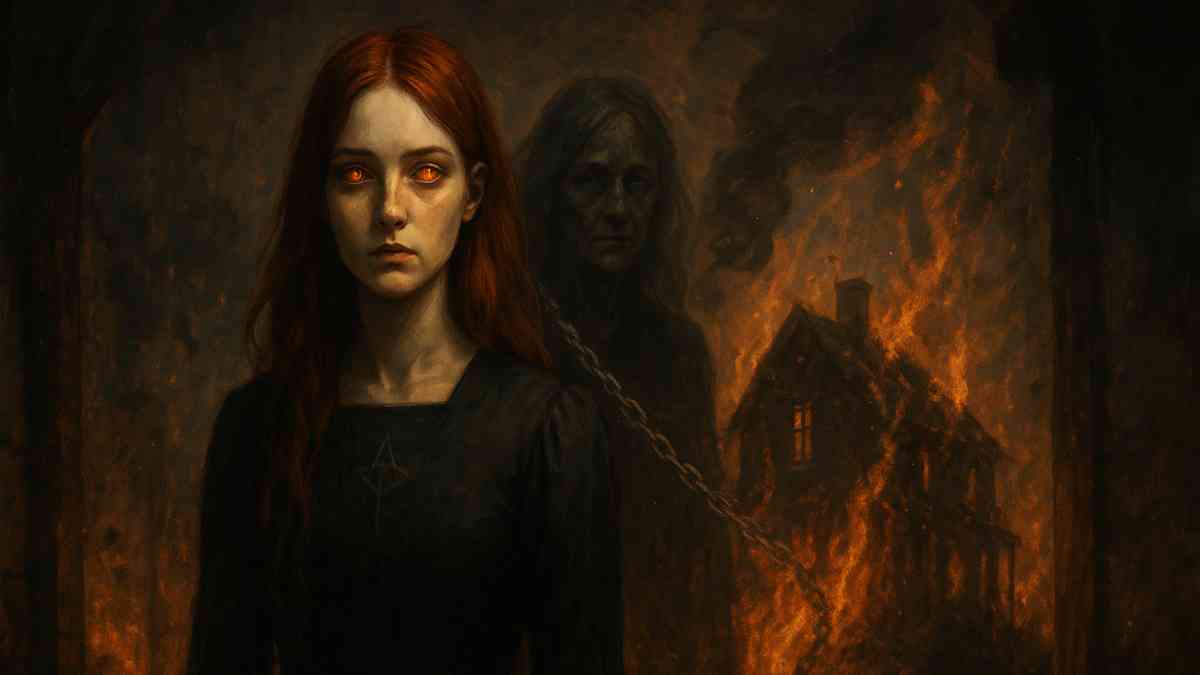Agnes Montague: The Enigmatic Flame of The Magnus Archives

In the shadowy and unsettling world of The Magnus Archives, few characters command as much intrigue and mystery as Agnes Montague. Her story is one of sorrow, fire, power, and tragedy—a narrative steeped in supernatural horror and symbolic depth. Agnes is not merely a character in a fictional podcast; she is an emblem of Desolation, destruction cloaked in beauty, and silence drenched in emotional upheaval.
As a central figure associated with the sinister force known as The Desolation, Agnes’s life is interwoven with the mystical and malevolent energies that haunt the series. Her origins, affiliations, and ultimate fate mark her as one of the most memorable and haunting personas in the Magnus Archives universe.
Origins of the Flame: Birth and Early Life
Agnes Montague was born into a destiny not of her choosing. Her birth was orchestrated by a cult known as the Lightless Flame, whose intentions were nothing short of apocalyptic. They believed Agnes to be the harbinger of their deity’s wrath, the living embodiment of fire and ruin.
From the outset, Agnes’s life was marked by tragedy and ritual. Her mother, Eileen Montague, immolated herself in a ceremonial act, dying in flames to mark the arrival of her daughter. This horrifying scene set the tone for Agnes’s existence—surrounded by cultists who viewed her not as a child, but as a divine instrument.
Her childhood was isolated and eerie. Deprived of normal human contact and any semblance of familial love, Agnes grew up in an environment where emotional detachment and silent endurance were the norm. Her caretakers nurtured her as one would tend to a volatile relic, not a human being.
The Avatar of Desolation
Agnes Montague is widely recognised in The Magnus Archives fandom as an avatar of The Desolation—an eldritch power representing pain, fire, and the ruinous beauty of destruction. Unlike other avatars who relish the chaos they cause, Agnes remains a tragic contradiction.
She neither fully embraces nor wholly rejects her identity. Her powers—linked to spontaneous combustion and emotional torment—manifest sporadically and uncontrollably. This struggle between her human desires and supernatural burdens defines much of her existence.
In many ways, Agnes is a reluctant god. She resents the power burning within her, yet cannot escape it. The cult sees her as a messiah; she sees herself as a prisoner.
Hill Top Road: A Haunted Haven
One of the most enduring symbols of Agnes’s legacy is her association with Hill Top Road—a house imbued with malevolent energy. In 1974, the house was destroyed in a mysterious fire, and its ashes became a site of supernatural curiosity. The building is deeply tied to Agnes’s essence, becoming a space where the veil between reality and The Desolation thins.
Visitors to the remnants of Hill Top Road often report eerie feelings, the scent of smoke, and a stifling warmth in the air. In the podcast, the location is frequently referenced as a nexus of paranormal activity, with Agnes’s presence lingering long after her physical departure.
The Binding Ritual: Agnes and Gertrude Robinson
One of the most significant chapters in Agnes’s life involves a ritual that bound her to another central figure in the Magnus Archives universe: Gertrude Robinson, the former Head Archivist. This mystical tether anchored Agnes to the physical world and disrupted the cult’s plans for her ascension.
Gertrude, pragmatic and shrewd, saw the threat that Agnes posed—not just to the world, but to herself. The ritual was an act of desperate containment. Agnes, surprisingly, seemed grateful. It granted her a temporary reprieve from the cult’s control and the constant burning inside her.
The relationship between Agnes and Gertrude is complex. Though not affectionate, there is mutual understanding. Agnes even refers to Gertrude as her “anchor,” a term loaded with meaning for someone whose entire existence threatens to spiral out of control.
Love and Loss: Jack Barnabas
In a rare moment of near-normalcy, Agnes engages in a brief, melancholic romance with Jack Barnabas—a man intrigued by her strangeness and beauty. Their courtship, short-lived and bittersweet, offers a glimpse into what Agnes might have been under different circumstances.
Jack describes her as distant but enchanting. They would sit together in silence at Canyon Café, Agnes never drinking the coffee she ordered, the cup remaining hot and untouched. Their relationship, though sincere, was ultimately unsustainable. Agnes was too bound by her nature, too enmeshed in a fate far larger than herself.
A Tragic End: Death and Legacy
Agnes Montague’s life ends as it began—in fire. In 2006, she takes her own life in a flat in Sheffield. It is a scene of both liberation and despair. The cult is left without its divine vessel, and the world loses a soul caught between power and humanity.
Her death is not without symbolism. She chains herself to the deceased Raymond Fielding—another cult figure—binding herself to the past even as she exits the stage of life. The act is final, solemn, and strangely peaceful. For Agnes, death was not defeat; it was escape.
Thematic Analysis: Desolation as Metaphor
Beyond the supernatural elements, Agnes Montague’s story is rich with metaphor. She embodies emotional desolation—the burning loneliness that can consume a person from within. Her powers are allegories for trauma, grief, and isolation.
Agnes is also a critique of control and indoctrination. Raised in a cult, stripped of choice, and transformed into a symbol, her narrative challenges notions of free will and identity. She is both revered and reviled, loved and feared.
Her relationship with fire is particularly symbolic. Fire can destroy, but it can also purify. It illuminates and consumes. Agnes represents this duality: a source of light and ruin, a beacon and a warning.
Fan Interpretations and Cultural Impact
Agnes Montague has left a significant mark on the Magnus Archives fandom. Fans frequently create art, fiction, and analyses inspired by her story. She is often portrayed with red hair, burning eyes, and a sad, ethereal beauty.
Discussions around Agnes explore her possible regrets, her repressed emotions, and her ultimate longing for peace. She is not a villain in the traditional sense, but a victim of circumstances, elevated to divine status by those who sought to use her.
Conclusion: The Fire That Never Went Out
Agnes Montague remains one of the most complex and tragic figures in The Magnus Archives. Her life, marked by pain and power, is a haunting narrative that speaks to deeper human fears—of losing control, of being used, of becoming something we never wished to be.
Her story lingers like smoke in the air, long after the fire has burned out. In the eerie world of the podcast, where memory and horror collide, Agnes is both a warning and a lament—a reminder that even gods can break, and even flames can mourn.



